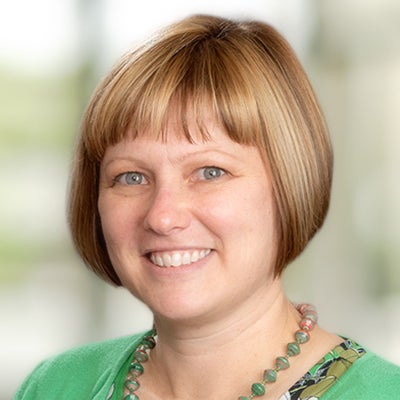
I have had many difficult conversations in my career as a family doctor. Breaking bad news to patients is one of my least favorite parts of the job. I always try to be aware of the patient and their needs when I tell them an unfavorable result.
I once called a patient to ask them to come into the office. I felt it was important to tell her in person that the CT of her lungs showed the cancer was back. I did not want to tell her over the phone. She disagreed.
“Tell me now,” she said.
“Where are you?” I could hear street noises in the background.
“I’m in the Walmart parking lot, but I don’t care, I want you to tell me now.”
So, I did. I told her the cancer was back while she stood in the middle of the Walmart parking lot.
Giving bad news is but one of the many difficult patient interactions I have as a family doctor. Another is discussing end of life care. Considering all the conversations I have with patients, such as the need for a healthy diet, quitting smoking, encouraging exercise, or getting cancer screenings, one of the most important things I should be talking to patients about is their desires at the end of life. This topic is as important as any other, but it is the one conversation most often avoided.
In studies asking doctors why they don’t have conversations about end of life, the number one answer is they don’t want to destroy hope. Doctors don’t want to be the bad guys. We have heard patients time and time again tell stories about how a doctor told a family member bad news and they were wrong. They predicted a bad outcome, and the patient defied the odds. We do not want to be the one that tells a patient they have a short time to live, remove hope for survival, and become the subject of a cautionary tale of how doctors overstep their bounds. We do not want to be the one to advise that a patient should start considering the inevitable and plan for the end of their life.
The reality is patients want to talk about end of life. They want to talk about it with their primary care provider when they are not actively dying. These conversations can occur at any time and are most welcome when the patient is not desperately facing the end of life. Like my patient in the Walmart parking lot, patients want to have hard conversations on their own terms. They want to be able to make calm, informed decisions, share them with their family members, and be prepared ahead of time. One of the ways that this can be accomplished is with an Advanced Care Plan.
Studies show that patients who have these conversations earlier tend to utilize Palliative Care and Hospice sooner. They have less invasive treatments, reduced hospitalizations, and increased patient satisfaction. They get to make decisions about their care on their own terms without any loss of hope.
Family members of patients who have had discussions about end of life, and developed an Advanced Care Plan, are educated about their family members desires, removing the burden of having to make hard decisions about their loved ones during a stressful time. The patient’s decisions have already been made, shared, and validated. We have not removed hope but given back a sense of control for the patient and their families.
An Advanced Care Plan is a place to start with your patients at any time in their life. I tend to do this at a well visit. I start by asking the patient if they have someone designated to make decisions for them should they be unable to make decisions for themselves. This simple question can open up a dialogue about end-of-life care. Often this conversation is ongoing. I rarely have an Advanced Care Plan completed in one conversation. It takes time, contemplation, reflection, and reassurance. It often takes several conversations over time. It is really no different than any other conversations we have with our patients. I rarely have a diabetic decrease their HgA1c from a 12 to a 7 in one conversation. It takes counseling, education, and guidance to get there.
This is a worthwhile endeavor and one that our patients desire. Consider starting the conversations now. In the next article, I will outline what an Advanced Care Plan looks like and how to code for those conversations.
References:
- Cohen, Michael G: Hope and Avance Care Planning in Advanced Cancer: Is There a Relationship?, Cancer, March 15, 2022; 1339-1345
- Ahluwalia, Sangeets C: Associated of Early Patient-Physician Care Planning Discussion and End of Life Care Intensity in Advanced Cancer, Journal of Palliative Medicine, 2015, Vol 18 No 10, 834-841
- Ashana Deepshikha: Advance Care Planning Claims and Health Care Utilization Among Seriously Ill Patients Near the End of Life, Jama Network Open, 2019, 2(11): e1914471
- Corn, Benjamin: It’s Hard to Extinguish Hope, Cancer, March 15, 2022, 1168-1170
- Sedini, Cristina: Advance Care Planning and Advance Directives: An Overview of the Main Critical Issues, Aging Clinical and Experimental Research, 2022, 34: 325-330
- Godfrey, Mary: Advance Care Planning: Policy and Real-Life Decision Making?, Age and Aging 2015; 44: 348-350
- Murray, Scott: Advance Care Planning in Primary Care, BMJ, 2006, 333: 868-869
- https://www.acpdecisions.org/19-evidence-based-benefits-of-advance-care-planning/
About the Author


